
The history of the Cape Colony from 1806 to 1870 spans the period of the history of the Cape Colony during the Cape Frontier Wars, which lasted from 1779 to 1879. The wars were fought between the European colonists and the native Xhosa who, defending their land, fought against European rule.

Ciskei was a Bantustan for the Xhosa people-located in the southeast of South Africa. It covered an area of 7,700 square kilometres (3,000 sq mi), almost entirely surrounded by what was then the Cape Province, and possessed a small coastline along the shore of the Indian Ocean.
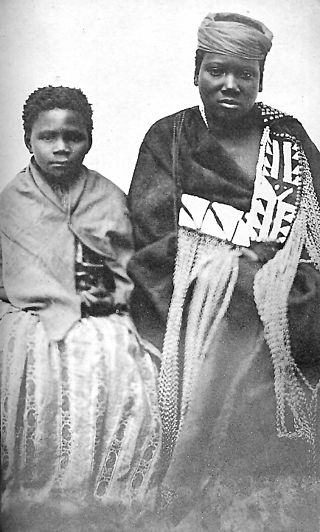
Nongqawuse was the Xhosa prophet whose prophecies led to a millenarian movement that culminated in the Xhosa cattle-killing movement and famine of 1856–1857, in what is now Eastern Cape, South Africa.

Kaffraria, Kaffiria, or Kaffirland was the descriptive name given to the southeast part of what is today the Eastern Cape of South Africa. Kaffraria, i.e. the land of the Kaffirs, is no longer an official designation.
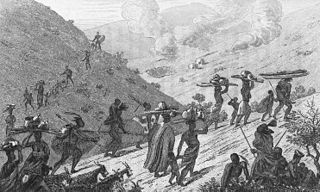
The amaMfengu was a reference of Xhosa clans whose ancestors were refugees that fled from the Mfecane in the early 19th century to seek land and protection from the Xhosa and have since been assimilated into the Xhosa cultural way of life, becoming part of the Xhosa people. The term derives from the Xhosa verb "ukumfenguza" which means to wander about seeking service.

Qonce, formerly known as King William's Town, is a city in the Eastern Cape province of South Africa along the banks of the Buffalo River. The city is about 60 kilometres (37 mi) northwest of the Indian Ocean port of East London. Qonce, with a population of around 35,000 inhabitants, forms part of the Buffalo City Metropolitan Municipality.

The Buffalo Volunteer Rifles (BVR) is an infantry regiment of the South African Army. As a reserve unit, it has a status roughly equivalent to that of a British Army Reserve or United States Army National Guard unit.
Fort Hare was an 1835 British-built fort on a rocky outcrop at the foothills of the Amatola Mountains; close to the present day town of Alice, Eastern Cape in South Africa.

British Kaffraria was a British colony/subordinate administrative entity in present-day South Africa, consisting of the districts now known as Qonce and East London. It was also called Queen Adelaide's Province and, unofficially, British Kaffiria and Kaffirland.
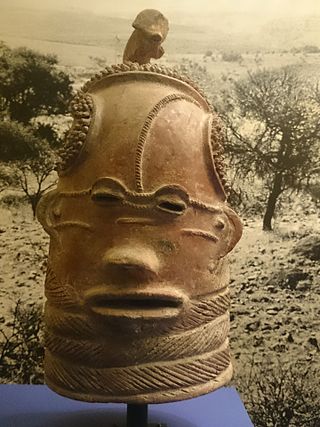
South African Bantu-speaking peoples are the majority of black South Africans. Occasionally grouped as Bantu, the term itself is derived from the word for "people" common to many of the Bantu languages. The Oxford Dictionary of South African English describes its contemporary usage in a racial context as "obsolescent and offensive" because of its strong association with white minority rule with their apartheid system. However, Bantu is used without pejorative connotations in other parts of Africa and is still used in South Africa as the group term for the language family.
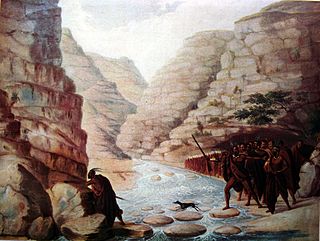
The Xhosa Wars were a series of nine wars between the Xhosa Kingdom and the British Empire as well as Trekboers in what is now the Eastern Cape in South Africa. These events were the longest-running military action in the history of European colonialism in Africa.

Butterworth is a town in the Eastern Cape Province, South Africa. Butterworth has a population of 45,900 and is situated on the N2 national highway 111 km north of East London.

Pondoland or Mpondoland, is a natural region on the South African shores of the Indian Ocean. It is located in the coastal belt of the Eastern Cape province. Its territory is the former Mpondo Kingdom of the Mpondo people.

The Diocese of Grahamstown is a diocese of the Anglican Church of Southern Africa. It is centred on the historic city of Makhanda in the Eastern Cape Province of South Africa. The diocese extends to East London, in the east and Port Alfred to the south.
Jacob Ludwig Döhne, from the Berlin Missionary Society, who was responsible for compiling A Zulu-Kafir Dictionary after spending twenty years documenting the language and dialects. He also translated the New Testament into Xhosa and Zulu.
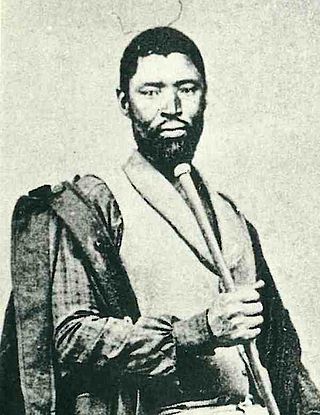
Mgolombane Sandile (1820–1878) was a ruler of the Right Hand House of the Xhosa Kingdom. A dynamic leader, he led the Xhosa armies in several of the Xhosa-British Wars.

The Ngqika people are a Xhosa monarchy who lived west of the Great Kei River in what is today the Eastern Cape of South Africa. They were first ruled by Rarabe kaPhalo who died with his son Mlawu, who was destined for chieftaincy. The clan would be named after Ngqika ka Mlawu, the son of the then late Mlawu. It would be years before the child would rule his people who fought in the Xhosa Wars, which were sparked by the encroachment of European settlers on Xhosa lands.

Fingoland was a historical territory situated in what is now the Eastern Cape, South Africa. It was inhabited primarily by the Xhosa people of the Mfengu clans, and was located in the south-west portion of the "Transkei" region.

Thembuland, Afrikaans: Temboeland, is a natural region in the Eastern Cape province of South Africa. Its territory is the traditional region of the abaThembu, one of the states of the Xhosa nation.
Lesseyton is a town in Enoch Mgijima Local Municipality in the Eastern Cape province of South Africa, located 14 km (8.7 mi) northwest of Queenstown. Almost all residents are Xhosa speakers. Lesseyton has two schools: Lesseyton Primary School and Ndlovukazi Public High School.














